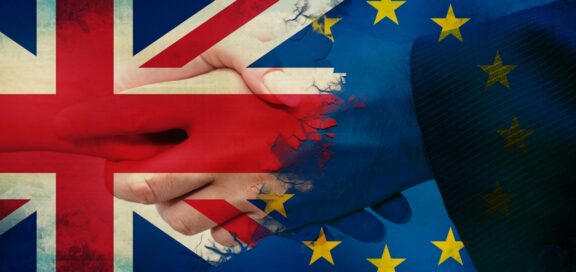The German limited liability company (Gesellschaft mit beschränkter Haftung, GmbH) is the most popular German legal form and usually the right choice for a market entry in Germany. In its ‘purest’ form it requires the presence of the shareholders (or their representatives) and the managing director to be appointed before a German notary.
However, it is not only in the pandemic that parties involved want to avoid travelling. Especially when German subsidiaries are founded as distribution vehicles for foreign companies, managing directors are often appointed from among the employees or management staff of the parent company. These are seldom inclined to travel from the USA, Australia, Japan or even from other neighbouring European countries to set up a simple subsidiary. This is where we can help. The following article gives a (rather detailed) overview. Please do not hesitate to contact the author for support and enquiries.
A. The Standard Process of Incorporation
The formation of a GmbH requires the notarisation or certification of declarations at several points.
The articles of association must be notarised by a German notary public, with all shareholders signing. When entering the German market, the founding partner is usually a foreign company whose representation is governed by its home law. In the case of a Spanish S.L. it is the administrador, in the case of an Irish Limited it is the director, in the case of a French SARL it is the gérants. The company register will usually requires proof of the existence of the foreign company and its representation.
The founding shareholders appoint one or more managing directors for the limited liability company. This can be a person from among them or an outside director. The managing director needs to register the company with the commercial register. The managing director must submit the application in publicly certified form, whereby the notary submits it electronically to the commercial register. The application contains certain assurances. In the process, instructions must be given in accordance with certain requirements.
B. Possible Solutions under Current Law
Based on the mandatory formal requirements of a presence formation, possibilities can be found to avoid presence and thus travel expenses. A distinction must be made between the memorandum and articles of association and the registration of the company.
I. Conclusion of the Articles of Association
For the conclusion of the articles of association, notarisation before a foreign notary or a German consulate general can be considered.
- Foreign Notarisation and Consular Procedures
The conclusion of the articles of association requires notarial certification. A German notary may not notarise or certify on foreign soil, even if he were prepared to do so. The corresponding declarations would be formally invalid. Other solutions must be found. Two approaches can be considered:- The first is to make the relevant declarations before a consul. In principle, a deed recorded by a consul is equivalent to a notarial certification. In practice, however, one should not be too euphoric about consular ‘notarisation’. Even arranging appointments can be difficult and prevent rapid incorporation. In addition, there are technical peculiarities with regard to notices, notifications and the storage of documents that should be taken into account.
- Secondly, there is the theoretical possibility of notarisation before a foreign notary. The scope of application is very limited. If possible, the parties involved should refrain from notarising abroad (not so with notarisation, see below). Jurisprudence requires equivalence of notarisation abroad. When this is the case is not uniformly assessed by case law, literature and, above all, the registry courts. In any case, foreign notarisation often has cost rather than practicality reasons, because equivalence is seriously considered only for Austria and individual cantons in Switzerland, but not for the more practically relevant cross-continental incorporations from the USA, Japan or Australia.
- Power of Attorney or Ratification
The founding shareholders can authorise a third party in Germany or have the articles of association concluded by a representative without power of attorney. The power of attorney or ratification must be notarised or certified. However, this opens more room for manoeuvre than in the case of a complete foreign notarisation of the articles of association, since a notarisation abroad is subject to lower requirements than the foreign notarisation.
The foreign certification must also be functionally equivalent to the German public certification. In concrete terms, it must therefore require an identity check. In all experience, the registry courts rarely have any objections in this regard, neither with consuls nor, for example, with US notaries public, who are otherwise functionally not comparable to the German notary.
Approval of a GmbH formed without a power of attorney is only possible in the case of a multi-person company and is subject to the same formal requirements as the formation power of attorney. The one-person company founded without a power of attorney can no longer be saved. The formation is then ineffective. Since the one-person company is likely to be the standard case for incorporations from abroad, particular attention must be paid to the correct power of attorney.
II. Registration of the Company and Directors’ and Officers’ Insurances
The registration of the company must contain certain assurances of the managing director (share capital paid up, no previous convictions of the managing director, etc.). These are highly personal, so a proxy is excluded. Thus, if travel to Germany is excluded, the registration must be notarised abroad.
In practice, a German lawyer or legal advisor will draft the application, it will be signed before a foreign notary and the signature will be certified. The required instruction is given by the lawyer or, more rarely, the notary and is attached to the application. In addition, the requirements for apostilles and certified translations must be observed. The document thus finalised is then sent by post to Germany and submitted here electronically by the notary.
C. Online Incorporation as of 01 August 2022
As of 01.08.2022 all the auxiliary solutions described will become obsolete, because from then on companies can be formed online by way of video communication – i.e. ultimately by video call of the founding partners with the notary. This is provided for in a new law which has already been passed and will come into force in August.
Both the notarisation of the memorandum and articles of association and the certification of the registration together with all insurances will be carried out in a procedure by means of a two-stage identification procedure in which only an identity card or foreign identification document will be required.
Online formation basically opens up all options for formation, from drafting the articles of association to using model protocols, different share capital and formation as a UG (the mini-GmbH with a theoretical share capital of 1.00 euro). Only the formation with non-cash assets is excluded. The share capital must therefore be effectively raised.
D. The Shelf Company as an Alternative in Present and Future
Online formation does not eliminate the need to demonstrate the existence and representation of the parent company. The acquisition of a shelf company will therefore continue to have its raison d’être in the future. Shelf companies are companies that special providers have set up ‘in stock’, so to speak, in order to speed things up.
All the necessary declarations can be made in private – with the exception of the registration of the new managing director. Service-oriented shelf companies will have the new articles of association (including the new company name) notarised before the share transfer and the new managing director appointed by shareholders’ resolution. This has the charm that, in the absence of a foreign shareholder, the registration courts do not require proof of existence and representation at this stage.
The share purchase agreement is then concluded by a representative without power of attorney in the name of the acquisition – the foreign company – whereby the authorisation can be given in writing. The registration of the new managing director remains, which, because of the highly personal assurances, excludes a proxy, but can be executed within the framework set out above as in the case of registration by foreign certification.
E. Practical Pitfalls
In all of the above, it should not be forgotten that this is only a matter of formation under company law in the narrower sense. In the context of formation there are various other formalities that slow down the formation process. The company must be registered for tax purposes, needs a VAT identification number, correct bookkeeping, a business address. It needs a bank account; it must be registered with the trade office and the transparency register.
The vexed issue of opening a bank account will not be solved by shelf companies. The banks’ money laundering regulations are so strict that personal presentation is often required – without any legal basis. Tax registration also sometimes takes several weeks. The digitalisation of company law will not solve these bureaucratic obstacles.
F. Summary
Remote incorporations are possible under current law with some planning effort. The digitisation of the incorporation process will make travel unnecessary in principle. Providers of shelf companies will not become unemployed. Bureaucracy and an analogue administration are currently still noticeably slowing down the formation process from abroad.
Johannes Brand is a lawyer and specialist in international business law and commercial and corporate law at the Frankfurt office and advises on all corporate law issues – from formation to employee share ownership programmes, managing director matters, shareholder disputes and in transactions. Johannes advises in particular and gladly in cross-border corporate law issues and helps foreign companies to enter the German market. In case of any questions get in touch by phone or mail.











